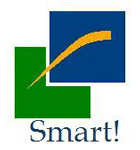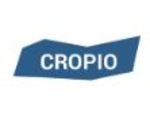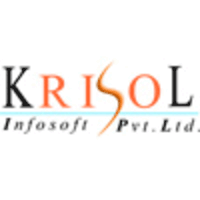Description
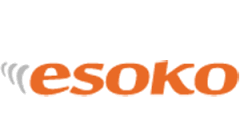
Esoko
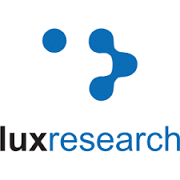
Lux Research
Comprehensive Overview: Esoko vs Lux Research
Esoko and Lux Research are two distinct entities operating in different sectors, with differing target markets, primary functions, and offerings. Here's a comprehensive overview:
Esoko
a) Primary Functions and Target Markets:
- Primary Functions: Esoko is a technology platform focused on transforming rural and agricultural markets in Africa. It provides digital solutions for agricultural markets, offering services like SMS-based information dissemination, market prices, weather forecasts, agricultural tips, and advisory services.
- Target Markets: The primary target market for Esoko is the agricultural sector, specifically targeting farmers, agricultural businesses, NGOs, and governments within Africa. It aims at helping smallholder farmers make informed decisions to increase productivity and income.
b) Market Share and User Base:
- Market Share: Esoko operates in the niche market of agricultural information services in Africa. While it is a significant player in this particular segment, the overall market is shared with similar platforms that offer agricultural extension services and digital farming solutions.
- User Base: Esoko serves a diverse user base, including individual farmers, farmer groups, agribusinesses, and development organizations. While specific user numbers are not publicly available, its impact is widespread in several African countries, with a focus on enhancing livelihoods through digital solutions.
c) Key Differentiating Factors:
- Localized Solutions: Esoko provides localized and context-specific information, making it highly relevant for small-scale farmers in selected regions.
- Multichannel Support: The platform supports various communication means, including SMS, apps, and voice messages, allowing accessibility without the need for smartphones.
- Partnerships: Strong collaborations with governments, NGOs, and the private sector enhance its reach and effectiveness in delivering agricultural information.
Lux Research
a) Primary Functions and Target Markets:
- Primary Functions: Lux Research is a research and advisory firm focusing on emerging technologies and innovation. It delivers market insights, technology assessments, and strategic advice to help clients leverage cutting-edge innovation.
- Target Markets: Lux Research targets corporates, technology developers, investors, and policymakers looking to understand and capitalize on technology trends across various industries like energy, healthcare, materials, and sustainability.
b) Market Share and User Base:
- Market Share: Lux Research, being a prominent player in the technical research and consulting space, holds a respectable position among other research firms. The niche nature of its services allows it to command significant influence within its target audience.
- User Base: Its clientele includes a broad range of organizations across industries that require insights into technology trends for strategic planning and innovation. Companies and entities seeking forward-looking analyses are frequent users.
c) Key Differentiating Factors:
- Focus on Emerging Technologies: Unlike general market research firms, Lux Research specializes in technologies at the forefront of innovation, providing in-depth analysis that is often predictive.
- In-depth Analysis and Advisory Services: Lux offers a robust combination of data-driven insights and tailored advisory, helping clients make informed strategic decisions.
- Comprehensive Reports and Tools: It provides comprehensive analytical tools and resources, which are valuable for clients looking for extensive customization and strategic modeling.
Conclusion
While Esoko and Lux Research operate in entirely different sectors with unique offerings, each has carved a niche for itself—Esoko in agricultural information systems in Africa, and Lux Research in technology advisory worldwide. The key differentiators for both are their specific focus, market approach, and the tailored solutions they offer to their respective user bases.
Contact Info

Year founded :
Not Available
+257 22 28 03 20
Not Available
Burundi
http://www.linkedin.com/company/esokoshop

Year founded :
2004
+1 617-502-5300
Not Available
United States
http://www.linkedin.com/company/lux-research
Feature Similarity Breakdown: Esoko, Lux Research
To provide a detailed feature similarity breakdown for Esoko and Lux Research, let's explore each aspect:
a) Core Features in Common
-
Data Analytics and Reporting:
- Both Esoko and Lux Research offer robust data analytics capabilities. Esoko focuses on agricultural market data, including pricing and weather forecasts, while Lux Research provides insights and analytics primarily for innovation and technology sectors.
-
Market Insights:
- Both platforms deliver market insights to their users. Esoko offers real-time updates and market trends specifically for agricultural stakeholders. Lux Research provides strategic insights into emerging technologies and industry trends across various markets.
-
Scalability:
- Each of these platforms supports scalability to cater to different user needs, from small-scale subscribers to large enterprise clients.
b) User Interface Comparison
-
Esoko:
- Esoko's user interface is tailored for ease of use by its primary audience, which includes farmers and agricultural businesses. It's designed to be accessible even with low technological proficiency, often featuring mobile integration for use in regions with limited internet access.
-
Lux Research:
- Lux Research's interface is geared towards business professionals and analysts, offering a more sophisticated and detailed dashboard. It includes advanced data visualizations and interactive reports, catering to users with a higher technological and analytical proficiency.
c) Unique Features
-
Esoko:
- Agricultural Focus: Esoko is uniquely positioned as a communication platform for agriculture, offering SMS alerts and mobile applications aimed at connecting farmers with market information and expert advice.
- Community Network: It provides tools for creating a community network that helps in disseminating agricultural knowledge among farmers.
-
Lux Research:
- Technology Scouting: Lux Research stands out with its specialized focus on innovation and technology scouting, helping companies to identify emerging technologies and trends with potential strategic impact.
- Research Advisory: Lux Research offers direct access to their analysts for strategic advisory services, a feature that adds significant value for businesses seeking tailored research insights.
In summary, while both Esoko and Lux Research offer data-driven insights and analytics, they cater to different industries and user needs, with Esoko focusing on agriculture and Lux Research on technology and innovation. Their user interfaces are designed to accommodate their respective target audiences, and each offers unique features aligned with their industry focus.
Features

Financial Services
Market Information
Supply Chain Management
Farmer Support

Market Insights
Data Tools
Client Solutions
Innovation Tracking
Best Fit Use Cases: Esoko, Lux Research
Esoko and Lux Research serve distinct purposes and cater to different segments of the market. Here’s a detailed breakdown of their respective best fit use cases:
Esoko
a) Best Fit for Businesses or Projects:
-
Agriculture and Agribusinesses: Esoko is primarily known for offering digital solutions tailored for the agricultural sector. It is ideal for agribusinesses that need to improve their supply chain efficiencies, manage farmer relations, or distribute agricultural knowledge and market information directly to farmers.
-
Rural Development Projects: Organizations engaged in rural development can benefit from Esoko’s platform to disseminate critical information and services to remote communities, helping them improve productivity and market access.
-
Non-Governmental Organizations (NGOs): NGOs working on agrarian or small-scale economic development projects will find Esoko useful for coordinating activities, collecting data, and providing real-time information to local stakeholders.
-
Government Agencies: For government projects focused on agricultural policy implementation, Esoko provides tools for data collection, farmer registration, and market information dissemination which are essential for policy planning and monitoring.
d) Catering to Industry Verticals and Company Sizes:
- Industry Verticals: Primarily agriculture, rural development, and allied sectors.
- Company Sizes: Tailored more towards SMEs, NGOs, and government bodies working at a grassroots level, where communication and information dissemination is crucial.
Lux Research
b) Preferred Use Cases:
-
Corporates in Technology Sectors: Lux Research is best suited for corporations that are engaged heavily in technology-driven sectors such as chemicals, materials, energy, and advanced electronics. These businesses benefit from Lux Research’s insights into emerging technologies and market trends.
-
Investment Firms and Venture Capitalists: Investment professionals looking for data on technology trends and market dynamics to make informed investment decisions will find Lux Research’s in-depth analysis and trendspotting capabilities invaluable.
-
Innovation Teams within Enterprises: Companies looking to innovate or understand competitive technology landscapes benefit from Lux’s strategic foresight, market intelligence, and innovation insights.
-
Consulting Firms: Management and strategy consulting firms can utilize Lux Research’s data and insights to guide clients in tech-driven industries about emerging technologies and innovation strategies.
d) Catering to Industry Verticals and Company Sizes:
- Industry Verticals: Technology, chemicals, energy, environmental services, and any sector heavily reliant on R&D and innovation.
- Company Sizes: Primarily large enterprises, corporates, and investment firms that require deep analysis and strategic insights, although parts of the services can be tailored to smaller firms with specific technology interests.
In summary, Esoko excels in supporting agriculture-related businesses and projects, focusing on grassroots communication and data needs, while Lux Research is the preferred partner for companies and investors who seek strategic insights into technology trends and innovation across various high-tech sectors.
Pricing

Pricing Not Available

Pricing Not Available
Metrics History
Metrics History
Comparing teamSize across companies
Conclusion & Final Verdict: Esoko vs Lux Research
To deliver a comprehensive conclusion and final verdict for Esoko and Lux Research, we will evaluate both offerings based on value, strengths, weaknesses, and user recommendations.
a) Best Overall Value:
Best Overall Value: Lux Research
Considering factors such as depth of analysis, industry reputation, and customer support, Lux Research appears to offer the best overall value. Their extensive research capabilities and data-driven insights provide businesses with a strategic advantage.
b) Pros and Cons:
Esoko:
Pros:
- Focus on Agriculture: Esoko excels in providing digital solutions for the agriculture sector, offering actionable insights for farmers and agribusinesses.
- User-Friendly Interface: The platform is known for its ease of use, making it accessible to users with varying levels of technical expertise.
- Cost-Effective: Typically, Esoko offers a more budget-friendly solution for small to medium-sized enterprises looking for agricultural insights.
Cons:
- Industry Limitation: Primarily beneficial for the agricultural sector, limiting its applicability for businesses outside this industry.
- Limited Advanced Features: Compared to Lux Research, Esoko may lack some advanced analytical tools and comprehensive datasets.
Lux Research:
Pros:
- In-Depth Analysis: Lux Research is renowned for providing robust and comprehensive insights across various industries, not limited to agriculture.
- Innovative Insights: The firm's focus on emerging technologies and market trends gives users a competitive advantage.
- Reputation and Expertise: Well-regarded for the quality and reliability of its research and reports.
Cons:
- Higher Cost: Lux Research services often come at a premium price, which might not be feasible for smaller enterprises.
- Complexity: The depth and breadth of information can be overwhelming for users without a significant background in research or data analysis.
c) Specific Recommendations:
Recommendations for Decision-Makers:
-
Industry Focus: If your primary interest lies within the agriculture sector and you require a solution that is both user-friendly and budget-conscious, Esoko is the ideal choice.
-
Broader Industry Needs: For businesses operating in multiple industries or those keen on exploring future trends and technologies, Lux Research offers the breadth of analysis and depth needed to inform strategic decisions.
-
Budget Considerations: Companies with tighter budgets should consider Esoko, particularly if their focus aligns with its strengths in agriculture. However, if the budget permits, Lux Research offers more comprehensive insights beneficial for broader applications.
-
Long-Term Strategy: For companies looking at long-term strategic insights and technological adoption across various fields, Lux Research provides a more suitable platform with far-reaching capabilities.
In summary, the choice between Esoko and Lux Research largely depends on the specific industry focus, budget constraints, and analytical needs of the business. Both platforms have distinct advantages, making it vital for users to align their choice with their strategic objectives and resources.
Add to compare


